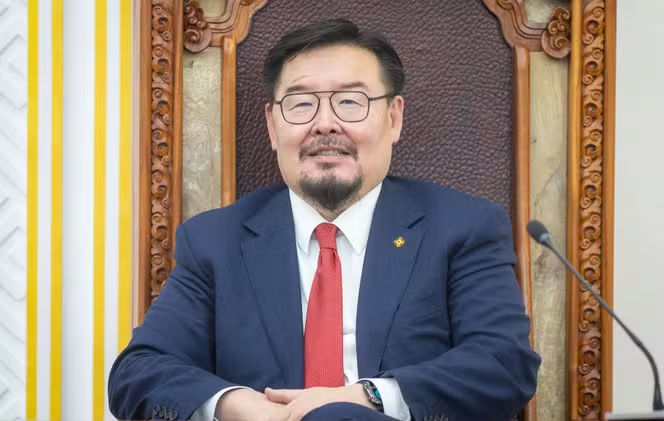Mongolia’s President Ukhnaa Khurelsukh has vetoed the dismissal of Prime Minister Gombojav Zandanshatar, days after parliament voted to remove him amid growing political tension in the country.
A majority of lawmakers had voted on Friday to oust Zandanshatar following weeks of infighting within the ruling Mongolian People’s Party and disputes over a controversial minerals tax policy.
However, the president’s office said parliament did not have a quorum when it convened to carry out the vote, rendering the decision invalid. The announcement was made by the head of the president’s office, Uilstuguldur Altankhuyag, alongside the Secretary of the National Security Council, Byambajargal Altangerel.
Mongolia’s constitutional court is expected to meet on Wednesday to consider the president’s veto.
Zandanshatar, a former chief of staff to President Khurelsukh, became prime minister in June after mass protests in Ulaanbaatar forced out his predecessor, Luvsannamsrain Oyun-Erdene, who lost a no-confidence vote. The demonstrations, largely driven by young people, reflected deep frustration with corruption, economic inequality, and political elitism.
The prime minister has since faced criticism from lawmakers—including members of his own party—over a major shift in minerals policy that would require exporters to pay royalties based on domestic stock prices rather than international benchmarks. Opponents argue the change could strain the national budget and harm investor confidence.
Zandanshatar also drew backlash for appointing a justice minister without parliamentary notification, a move some legislators labeled unlawful.
Mongolia, which shares borders with China and Russia, remains heavily dependent on resource exports such as coal, gas, and minerals. But widespread corruption, rising living costs, and economic uncertainty have created mounting public and political pressure on the government.

